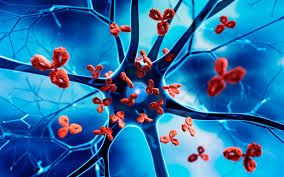Step-by-Step Guide to Your IVF Journey Mexico
Exploring IVF Options in Mexico: A Comprehensive Guide for Prospective Parents
As couples and individuals face the challenges of infertility, the search for effective and affordable treatment options becomes paramount. Mexico has emerged as a leading destination for in vitro fertilization (IVF), providing advanced medical care in a culturally rich environment. This guide is designed to equip prospective patients with essential information about the IVF journey in Mexico, detailing each step of the process while highlighting the unique benefits of choosing this vibrant country for fertility treatments.
Understanding IVF: A Comprehensive Overview
In vitro fertilization, commonly referred to as IVF, is a medical procedure designed to assist individuals and couples in overcoming fertility challenges. The process involves several stages, including the retrieval of eggs from the ovaries, fertilization of these eggs with sperm in a laboratory, and subsequent transfer of viable embryos into the uterus. IVF is typically recommended for various conditions, including age-related infertility, polycystic ovary syndrome (PCOS), endometriosis, and male factor infertility.
The procedure can be both physically and emotionally demanding, often requiring careful planning and consideration. Understanding the specifics of IVF, including potential risks and success rates, can empower patients to make informed decisions about their treatment options.
Initial Consultation: Setting the Foundation for Your Journey
The first step in the IVF process involves a comprehensive consultation with a fertility specialist at a reputable clinic. During this meeting, patients discuss their medical history, previous fertility attempts, and expectations from the treatment. The fertility specialist will likely recommend a series of diagnostic tests, including blood tests and ultrasound examinations, to assess the patient's reproductive health and devise a personalized treatment plan.
In Mexico, fertility clinics are known for their patient-centered approach and advanced diagnostic technologies. This initial consultation serves as a foundation for open communication, allowing patients to voice their concerns and clarify any uncertainties regarding the IVF process.
Detailed Breakdown of the IVF Procedure
1. Ovarian Stimulation: The IVF process begins with ovarian stimulation, which involves administering hormone injections to encourage the ovaries to produce multiple eggs. This phase typically lasts 10 to 14 days and requires regular monitoring through blood tests and ultrasounds to track follicle development. Effective communication between the patient and the medical team is crucial during this time to ensure optimal results.
2. Egg Retrieval: Once the follicles reach maturity, a minor surgical procedure is performed to retrieve the eggs. This procedure is conducted under sedation, ensuring that the patient remains comfortable. The goal is to collect a sufficient number of high-quality eggs, as this significantly enhances the chances of successful fertilization.
3. Fertilization: After retrieval, the eggs are combined with sperm in a controlled laboratory environment. Fertilization may occur through traditional insemination or via a technique known as intracytoplasmic sperm injection (ICSI), where a single sperm is directly injected into an egg. The choice of method depends on individual circumstances and the fertility clinic's recommendations.
4. Embryo Culture: Following fertilization, embryos are cultured for several days in the lab. Some clinics offer pre-implantation genetic testing (PGT) to screen embryos for genetic abnormalities, allowing patients to select the healthiest embryos for transfer. This step can significantly improve the likelihood of a successful pregnancy, especially for older patients or those with known genetic conditions.
5. Embryo Transfer: The next phase involves transferring one or more healthy embryos into the uterus. This is a relatively simple procedure that can be performed without anesthesia. Patients are typically advised to rest for a short period afterward to facilitate the implantation process.
6. Post-Transfer Monitoring: Approximately 10 to 14 days after the embryo transfer, patients undergo a blood test to determine if pregnancy has been achieved. This waiting period can be emotionally charged, but fertility clinics often provide support and resources to help patients cope with the uncertainty.
Financial Considerations: The Cost of IVF in Mexico
One of the significant advantages of seeking IVF treatment in Mexico is the affordability of the procedures. The cost of a standard IVF cycle in Mexico typically ranges from $4,000 to $8,000, significantly lower than the prices found in many Western countries. This cost-effectiveness extends to medications, consultations, and necessary procedures, making Mexico an attractive option for those seeking quality care without the financial burden.
Patients should also consider additional expenses such as travel, accommodation, and any follow-up treatments that may be required. However, Mexico's relatively low cost of living enhances the overall affordability of receiving medical care in the country.
Cultural and Lifestyle Benefits: Enjoying Mexico During Your IVF Journey
Mexico is not only a destination for high-quality medical treatment but also a place rich in culture, history, and natural beauty. Patients traveling for IVF can immerse themselves in the vibrant local culture, exploring historic sites, enjoying traditional cuisine, and relaxing on beautiful beaches. The diverse landscapes and welcoming atmosphere contribute to a fulfilling experience, allowing patients to balance the emotional aspects of treatment with enjoyable activities.
The warm climate and year-round tourism make Mexico a convenient location for international patients. Whether indulging in local festivals or exploring archaeological sites, the opportunity to experience Mexico can make the IVF journey more enriching and enjoyable.
Emotional Support: Navigating the IVF Experience
Undergoing IVF can be emotionally taxing, and many clinics in Mexico recognize the importance of providing psychological support. Counseling services are often available to help patients navigate the ups and downs of treatment, offering coping strategies and a safe space for expressing feelings. Support groups and workshops may also be offered, enabling individuals to connect with others facing similar challenges and fostering a sense of community.
By addressing the emotional aspects of fertility treatment, clinics in Mexico enhance the overall patient experience, ensuring that individuals feel supported throughout their journey.
The Path to Parenthood in Mexico
In conclusion, Mexico offers a comprehensive and compassionate approach to IVF, making it an attractive destination for individuals and couples seeking fertility treatment. With advanced medical technology, affordable pricing, and a rich cultural experience, patients can navigate their IVF journey with confidence and optimism.
As prospective parents consider their options, Mexico's unique blend of quality healthcare and vibrant culture presents an opportunity for hope and healing. By choosing to undergo IVF in this dynamic country, patients not only gain access to high-quality medical care but also embark on a journey that encompasses both personal growth and exploration.






